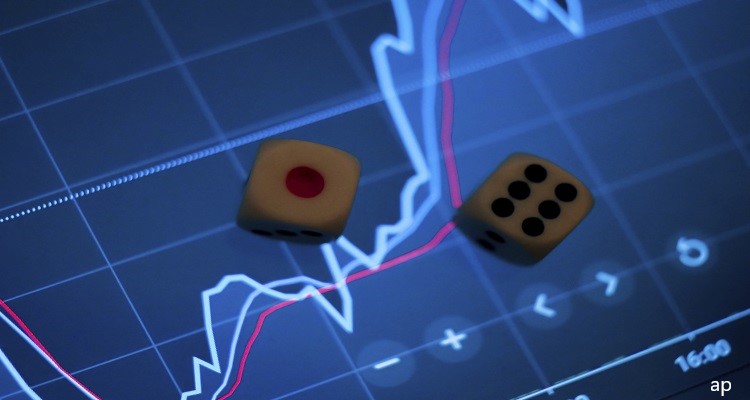
An inflationary rush, the energy crisis, the war in Ukraine, a pending recession, and drastic changes to monetary policy: the last 10 months has witnessed a sea change in thinking.
It’s been a painful time for investors too. The Morningstar Global Markets NR Index has slipped 11% since the beginning of the year, while the continent has done even worse, with the Morningstar Europe NR Index down 18% from January 1st (in Euros to 24 October) .
Today, Morningstar analysts believe European equities are significantly undervalued: the median stock in our European hedging universe is trading at a 24% discount from its estimated fair value (as of 25 October), which makes Europe the most convenient developed region to invest in, in terms of stock market valuations.
Of course, paying a low price is important, but market discounts shouldn't make us lose sight of another very important aspect when doing stock picking: quality. Below, we indicate the 10 most undervalued European equities with a Wide or Medium Economic moat, a stable or positive “Moat Trend” and a 5 star Morningstar Stock Rating.
Among these 10 companies, there are two to which Morningstar assigns an Uncertainty rating of Medium. They are as follows:
Prosegur Compania De Seguridad SA
Stock rating: ★★★★★
Economic moat: Medium
Fair value: 5.00 EUR
Uncertainty rating: Medium
Prosegur Compania De Seguridad is the fourth largest company in the security sector globally, and specialises in cash-in-transit and manned surveillance, with a small but fast-growing business in alarm systems.
“Prosegur's geographical focus is one of the main reasons why it has achieved operating margins close to 9% on average in the last decade, well above the 5% -6% average of peer groups,” wrote senior equity analyst Michael Field on 22 March 2022.
“In particular, its strong position in the high margin cash-in-transit (or CIT) markets in Latin America, where the company operates in a virtual duopoly, increases the group's average.
“We maintain our estimate of the fair value of 5 euros per share. From this point of view, we assume organic revenue growth on average over 7% over the next ten years.”
From an operating margin perspective, Morningstar research predicts a moderate improvement over the current situation, with a gradual increase in adjusted EBITDA margins from the depressed level of 6.5% in 2021 and an average of 10.3% over the period of forecast (10 years).
Grifols SA
Stock rating: ★★★★★
Economic moat: Medium
Fair value: 15.40 EUR
Uncertainty rating: Medium
The market share in the plasma-derived protein sector is concentrated among a small number of global players. Among them, Grifols, which rose to the level of competitors Takeda and CSL with the acquisition of Talecris for $3.7 billion in 2011.
In recent years, the company has battled the headwinds of the coronavirus pandemic with acquisitions and investments to build capacity for plasma collection and fractionation, in a bid to support its portfolio and pipeline, as well as expand geographically.
"Grifols holds a strong position in the global plasma protein oligopoly and we award it a Medium Economic Moat, based on high barriers to market entry," noted Karen Andersen, Morningstar's pharmaceutical industry sector strategist, in an assessment on 9 May 2022.
“We assume an average annual growth of 7% of the top-line and 39% of the bottom-line until 2026 (from a weak base in 2021). Revenue growth should continue to be driven by the plasma proteins of the biosciences division and the Biotest operation, which concluded in April 2022. We continue to expect strong long-term growth in immunoglobulin sales in the US and albumins in emerging markets.”
Among the ten, there is also a company to which Morningstar assigns a positive "Moat Trend", which means the assigned competitive advantage could go from Medium to Wide.
Delivery Hero SE
Stock rating: ★★★★★
Economic moat: Medium
Fair value: 88.00 EUR
Uncertainty rating: Very High
Morningstar equity research believes Delivery Hero's business model is based on strong network effects of multi-sided platforms and has competitive advantages worthy of an Economic Moat in Europe, Middle East and North Africa (MENA) and Asia, where the group operates a mix of own-delivery platforms and marketplaces (restaurants) and holds strong market positions.
Delivery Hero differs from other delivery operators by virtue of the fact it operates mainly in countries with favourable characteristics, such as high population and restaurant density, low-to-flexible minimum wages, relatively low average order value, and high frequency of delivery orders.
“We believe the group's exposure to these regions (Turkey, Saudi Arabia, Kuwait, United Arab Emirates, South Korea and Egypt) contributes to the creation of competitive advantages,” Pontikis says.
“That said, given the company's clear strategic orientation towards expanding its own delivery operations in all regions and its rapid trading activity (deliveries in less than an hour), for which the achievement of underlying profitability at the sector level it is still ongoing, we believe an investment in Delivery Hero shares is characterized by high uncertainty.”
With people spending more time at home working remotely, the longer-term effects of the pandemic have been broadly positive for such platforms. Indeed, penetration and utilisation have soared to unprecedented levels, remaining high even at times when there have been no restrictions on consumer behaviour. That’s a sing in itself of a profound shift. Morningstar analysts now expect the company to sustain double-digit revenue growth as penetration and order frequency evolve.
This article was originally published on Morningstar Italy and is translated for UK audiences


























